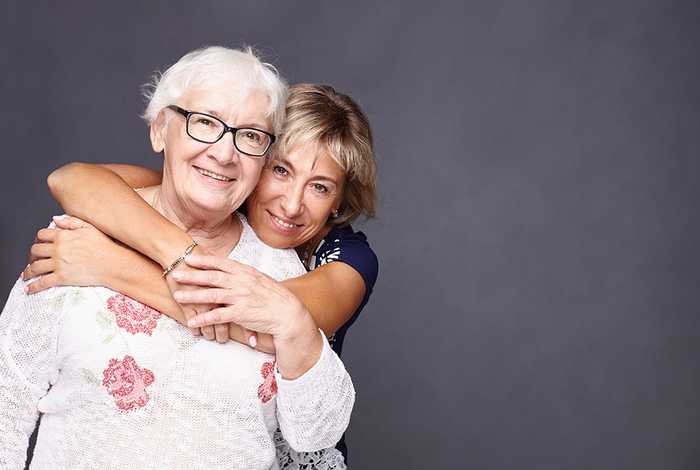Posted by Janine Griffiths
Importance of person centred values in care

When it comes to care, one size should never fit all. Everyone’s journey is different. Your life, your preferences, your story, they all matter. That’s the heart of person centred care.
At its core, this approach simply means putting you or your loved one at the centre of everything. It’s about shaping care around your unique needs, wishes, background and beliefs. Not just what’s convenient for a service, but what’s right for you and your family.
We’re living longer, and that’s something to be celebrated. But with an ageing population comes more pressure on care systems. It’s easy for people to start feeling like they’re being processed, not supported.
That’s where person centred values in care become essential. They remind us that good care isn’t just about ticking boxes or delivering tasks. It’s about treating people with dignity. Listening, not assuming. Offering real choices. Making sure every voice is heard and respected.
This approach is more than a set of principles. It’s a mindset that says your sense of self should never be an afterthought. Real care isn’t just about helping you live safely. It’s about helping you live well.
Understanding what truly matters in care
When you hear the phrase person centred values in care, it might sound like the type of jargon professionals use, but the meaning is actually simple and deeply human. It's about seeing you as a person first not just someone who needs support, but someone with a lifetime of memories, opinions, habits, and dreams still worth honouring.
At the heart of this approach are values that we all want to be treated with: dignity, respect, independence, choice, rights, and partnership. These aren't just nice ideas. They’re the foundation of care that actually feels supportive, not clinical.
More than ticking boxes
When people talk about person centred values in care, they’re really talking about treating you as a whole person, not just focusing on what care you need. It’s about recognising that you have your own likes and dislikes, your own routines, and your own way of seeing the world and making sure those things are respected every single day.
So what are these values exactly? Let’s break them down.
The core values behind good care
Treating people with dignity
This means being treated with kindness, compassion and respect no matter your age, abilities or needs. It's about being spoken to properly, being listened to, and never being made to feel like a burden.
Respect towards the individual
Respect goes hand in hand with dignity. It’s about recognising your life experiences, your identity and your preferences. Whether it’s how you like your tea or what time you want to go to bed, your choices matter.
Independence
Person centred care supports you to do as much as you can, in the way that suits you. It’s about keeping your freedom for as long as possible, rather than stepping in too quickly or taking over.
Patient choice
Everyone deserves to make decisions about their own life, whether big or small. From meals to medication to daily routines, real care means offering options and listening to your choices.
Equal rights
Just because you need care doesn’t mean your rights disappear. You still have the right to privacy, to be safe, to be involved in decisions, and to be treated fairly. Good care always protects those rights.
Equality partnership
This means care is done with you, not just for you. Your thoughts, feelings and input are valued. You’re not a passive recipient , you’re an equal partner in how your care is delivered.
Not a checklist, but a way of life
Some care services might see these values as boxes to tick. But person centred values in care are not a checklist. They’re a mindset. They shape how carers speak, listen, plan and support. It’s the difference between being treated like a task to complete and being treated like a person to connect with.
When care is built on these values, it doesn't just meet your needs, it honours who you are. And that can make all the difference.
When care forgets the person
There’s a quiet but powerful difference between being looked after and being truly seen. When care loses that personal touch, it can feel like you’ve become just another task on a list, rather than someone with a full life, preferences, and feelings. And that loss isn’t small.
When person centred values in care are ignored, people can begin to feel invisible. Confidence starts to fade. You may stop speaking up or making choices because it feels like no one’s really listening anyway. That emotional toll can creep into your wellbeing too, making everyday life feel heavier than it should.
The effects aren’t just personal, they’re cultural. How we care for others, especially in later life, says something about who we are as a society. Care should never be about efficiency at the expense of humanity. It should be a mirror of our values, and a reminder that every life matters, at every stage.
What true person centred values in care looks like
Real choice matters when it comes to your care. This is not about offering options that feel like a tick box exercise. It means meaningful choices, whether that is about how your day is structured, what activities you enjoy, or how you like to be supported. When those choices are respected, it restores a sense of control and dignity.
Listening is key. Care that truly values you will keep adjusting and responding as your needs and preferences change.
Finally, person centred values in care are crucial when decisions get complicated. They guide carers and professionals to always put the person at the heart of any choice, balancing safety and independence with respect and kindness.
In short, person centred care is not about perfect plans on paper. It’s about a living, breathing approach that recognises your individuality.
How person centred values support better outcomes
When care is shaped around the individual, the results are often quietly powerful. We list the main benefits of person-centred care below.
Better care, better wellbeing
When you feel listened to, respected and involved in your own care, it can lift your whole sense of wellbeing. People who experience care rooted in person centred values tend to feel more settled, more confident, and more at ease. It makes sense. When you know that your voice matters and your choices are being honoured, there’s a natural sense of trust that follows.
Complaints are fewer, too. That’s not because people stop noticing when things go wrong, but because fewer things go wrong. There’s more open communication and fewer misunderstandings. People feel able to speak up early, rather than waiting until frustration builds.
Safer, calmer, more responsive
Care that respects person centred values is also safer. It creates a space where problems can be dealt with early and support can be adjusted before it becomes a crisis.
In the end, person centred values in care don’t just make people feel better, they help care work better for everyone involved.
Knowing what to look for in truly person centred care
When you’re exploring care options for yourself or a loved one, it’s easy to get caught up in brochures, ratings and superficial features. But underneath all that, what really matters is whether a provider genuinely embraces person centred values in care because this approach isn’t about ticking boxes, it’s about how you’re treated, day in and day out.
So how can you tell if those values are truly being lived out?
Do you feel able to ask questions?
Most importantly, never be afraid to ask questions. You have every right to be curious and to speak up. Whether you’re choosing care for yourself or a loved one, being an active participant helps ensure the support you get truly reflects person centred values in care.
Autonomy
One of the clearest signs of truly person-centred care is whether the individual is actively involved in their own decisions. Are care providers asking what matters to the person, or simply dictating how things will be done? Good care should always feel like a conversation, not a set of instructions.
Delivery of care
Notice whether preferences are not only heard but actually followed through. Whether it’s daily routine, meals, personal preferences, or the manner in which support is provided, choices should always count.
Is your care holistic?
It’s important to consider whether the staff truly see the whole person - not just care needs, but also personality, interests, and life history. Do they take the time to get to know the individuals they care for? Do they remember the small details that help individuals feel at home and valued?
When care feels human, respectful and personal, that’s when you know you’ve got the right place.
Leading with values
At the heart of truly good care lies something simple but powerful - the way we treat each other. Person centred values in care are not just an added bonus or a “nice to have.” They are the foundation. The starting point. The reason care feels like care in the first place.
This isn’t about grand gestures or perfect systems. It’s about the little things, done well and done consistently. A gentle tone. A respectful pause. A real conversation where your voice is not just heard but valued. These small moments add up to something that feels meaningful and dignified.
Whether you’re choosing care for yourself, supporting someone close to you, or working within the system, this is the message to hold on to: lead with values. Ask for them. Look for them. Expect them. Care that’s built on person centred values in care is not just better, it’s the kind of care every person deserves.
Finding person centred care just got easier
If you’re searching for care that genuinely puts you first, Autumna is here to make that journey simpler, clearer, and far less overwhelming.
Start by visiting our online directory. Just pop your location into the search bar, choose the type of care you’re looking for, and let us do the rest. You can also use the filters above your results to fine-tune your search based on what really matters to you. One easy way to tell whether a care home is likely to offer the type of care you need is to look at their OpenScore. OpenScore is a score out of 10 that ranks care homes on multiple data points including cost transparency, live reviews, regulator ratings and more.
For an even more tailored experience, try our free shortlisting tool. It only takes a minute or two to answer a few quick questions, and we’ll generate a personalised list of care providers that align with your needs.
Prefer to talk to someone? No problem. Our friendly, expert team is just a phone call away. Give us a ring on 01892 335 330 we’re here to listen, guide, and help you find care that feels right.
Receive a Free Care Provider Shortlist!
Let our expert team of advisers get your search off to a great start.
Tell us a little about your needs and we'll send you a bespoke shortlist of care providers! Click the button below to begin, it takes just a few minutes.
Other articles to read
From the blog

Older Persons Care Advice
How to talk to your parents about care options
October 2nd, 2025
Learn how to talk to your parents about care options with compassion. Explore choices together and plan for the future with dignity and respect.

Older Persons Care Advice
Guide to empowering and promoting independence in older age
September 30th, 2025
Read our practical guidance for families on empowering and promoting independence in older age, helping loved ones stay confident and in control.

Older Persons Care Advice
Ultimate guide to jointly owned property and care home fees
September 26th, 2025
Understand jointly owned property and care home fees, how assessments work, and steps to protect your finances and plan ahead with confidence.
Frequently Asked Questions
While the terms are often used interchangeably, person centred care places a strong focus on the values, dignity and autonomy of the individual. It’s about partnership and respect, not just tailoring services. Personalised care can still be task-focused, while person centred values ensure that care is based on meaningful relationships and choice.
Look beyond the brochures. Ask specific questions: Are you involved in decisions? Are your preferences reflected in daily routines? Does the staff know your background and interests? If answers are vague or impersonal, chances are the values are more promotional than practical.
Not at all. Person centred values in care should apply across the board, from home care and supported living to retirement communities and nursing homes. The setting may change, but your right to be seen, heard, and respected remains the same.
These values become even more important in situations where someone may struggle to express their needs. Person centred care ensures staff take the time to understand history, routines, and behaviours, allowing them to deliver care that still feels respectful and familiar, even without words.
Yes, and often it improves efficiency. When people feel heard and involved, care tends to run more smoothly. There are fewer complaints, fewer crises, and less stress for everyone involved. It’s not about spending more - it’s about changing how care is delivered.






